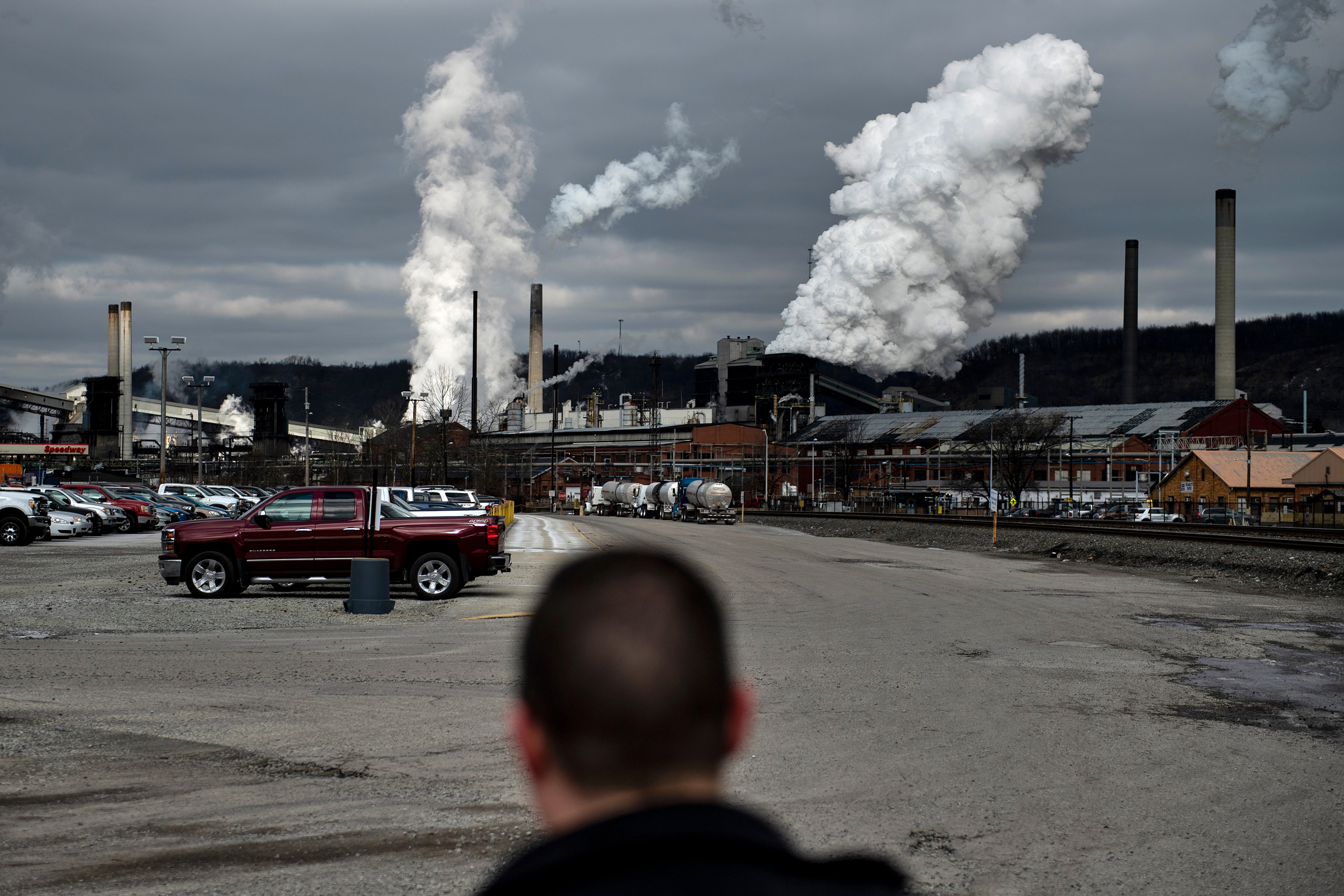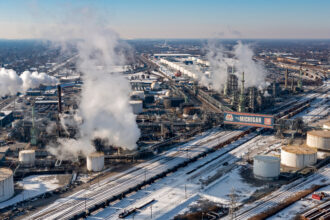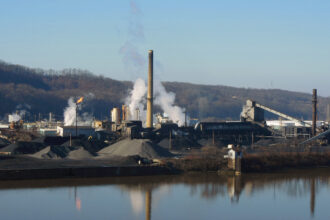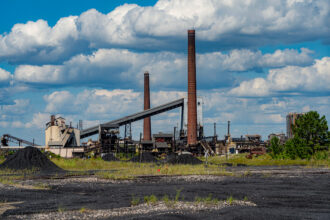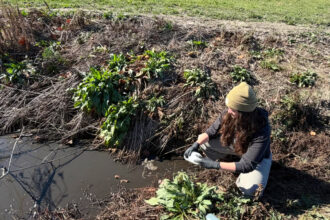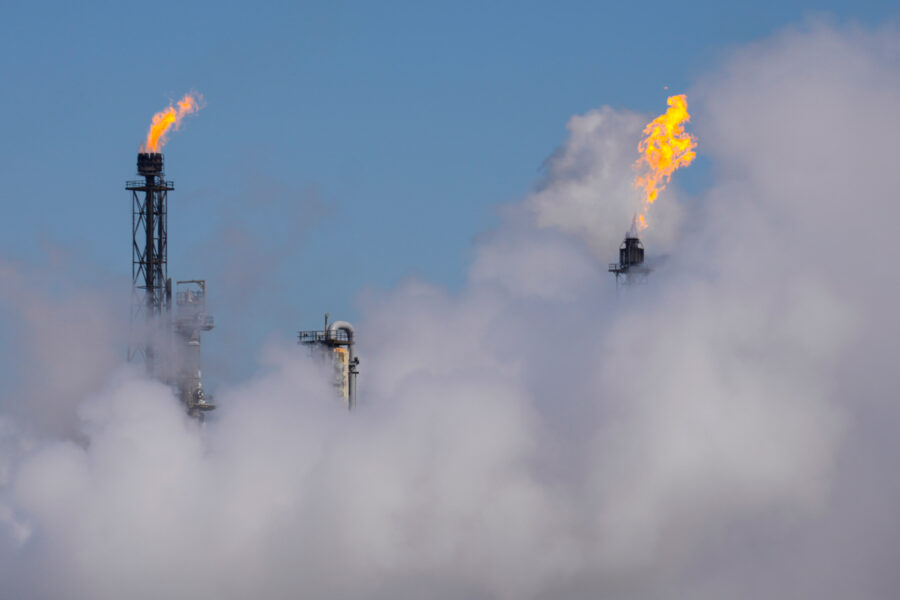Public health advocates pushed back when the U.S. Environmental Protection Agency said it planned to delay for two years a requirement that steel companies monitor air quality at the perimeters of their 11 coke plants in Western Pennsylvania and across the country. Two groups sued.
Now, the EPA has reversed course.
The deadline to begin so-called fenceline monitoring for emissions of benzene, chromium and other toxic contaminants, set by the Biden administration, had been in July. On July 8, the Trump EPA extended the deadline until July 2027 in an interim final rule, saying there wasn’t enough time to seek, compile and respond to public comments, potentially forcing some companies into violation.
On Friday the EPA said in a notice that it was withdrawing the delay because the policy wouldn’t create compliance problems for industry after all.
“EPA does not believe that the currently available information supports a conclusion that regulated parties would face significant immediate compliance challenges,” the agency wrote after the nonprofits Environmental Integrity Project and Earthjustice sued over the matter.
The environmentalists’ lawsuit challenged the rule on the grounds that it deprived people in nearby communities of protection against toxic air pollution. Rather than defend the interim final rule in court, the environmental groups said in a statement, the EPA affirmed its prior finding that coke ovens are fully capable of complying with the rule, “thereby acknowledging that the delay of compliance dates was never needed.”
“We’re glad that EPA recognizes the harm coke oven plants cause to communities and that it is more than reasonable for these facilities to meet emissions standards now,” Adrienne Lee, a senior Earthjustice attorney, said in a statement. “The health and wellbeing of impacted communities should not come at the cost of giving corporate polluters a pass.”
An August report from the Environmental Integrity Project examined preliminary testing the Biden administration required steel and coke plants to conduct. EIP found that emissions of benzene, a carcinogen, from U.S. Steel’s Clairton Coke Works near Pittsburgh were up to eight times higher than a California standard, which the group used as a national benchmark because many states don’t have ambient air-quality standards. At another U.S. Steel plant in Gary, Ind., a six-month average of emissions of chromium were twice as high as the California standard, EIP said.
Two people died and 10 were injured in an explosion at the Clairton plant in August. The facility has been fined more than $10 million by the EPA for environmental violations in the last three years, more than any other plant on a list of 20 surveyed by EIP.
U.S. Steel criticized the EPA’s withdrawal of the compliance deadline and said it would consider its next steps.
“U. S. Steel is committed to working with the EPA and supports regulations that are well-grounded in law, and are based on sound science, available and proven technology, and that consider costs and other non-air quality impacts. Unfortunately, the 2024 coke rules do not meet these criteria, and we are evaluating next steps,” the company said in a statement.
About This Story
Perhaps you noticed: This story, like all the news we publish, is free to read. That’s because Inside Climate News is a 501c3 nonprofit organization. We do not charge a subscription fee, lock our news behind a paywall, or clutter our website with ads. We make our news on climate and the environment freely available to you and anyone who wants it.
That’s not all. We also share our news for free with scores of other media organizations around the country. Many of them can’t afford to do environmental journalism of their own. We’ve built bureaus from coast to coast to report local stories, collaborate with local newsrooms and co-publish articles so that this vital work is shared as widely as possible.
Two of us launched ICN in 2007. Six years later we earned a Pulitzer Prize for National Reporting, and now we run the oldest and largest dedicated climate newsroom in the nation. We tell the story in all its complexity. We hold polluters accountable. We expose environmental injustice. We debunk misinformation. We scrutinize solutions and inspire action.
Donations from readers like you fund every aspect of what we do. If you don’t already, will you support our ongoing work, our reporting on the biggest crisis facing our planet, and help us reach even more readers in more places?
Please take a moment to make a tax-deductible donation. Every one of them makes a difference.
Thank you,

